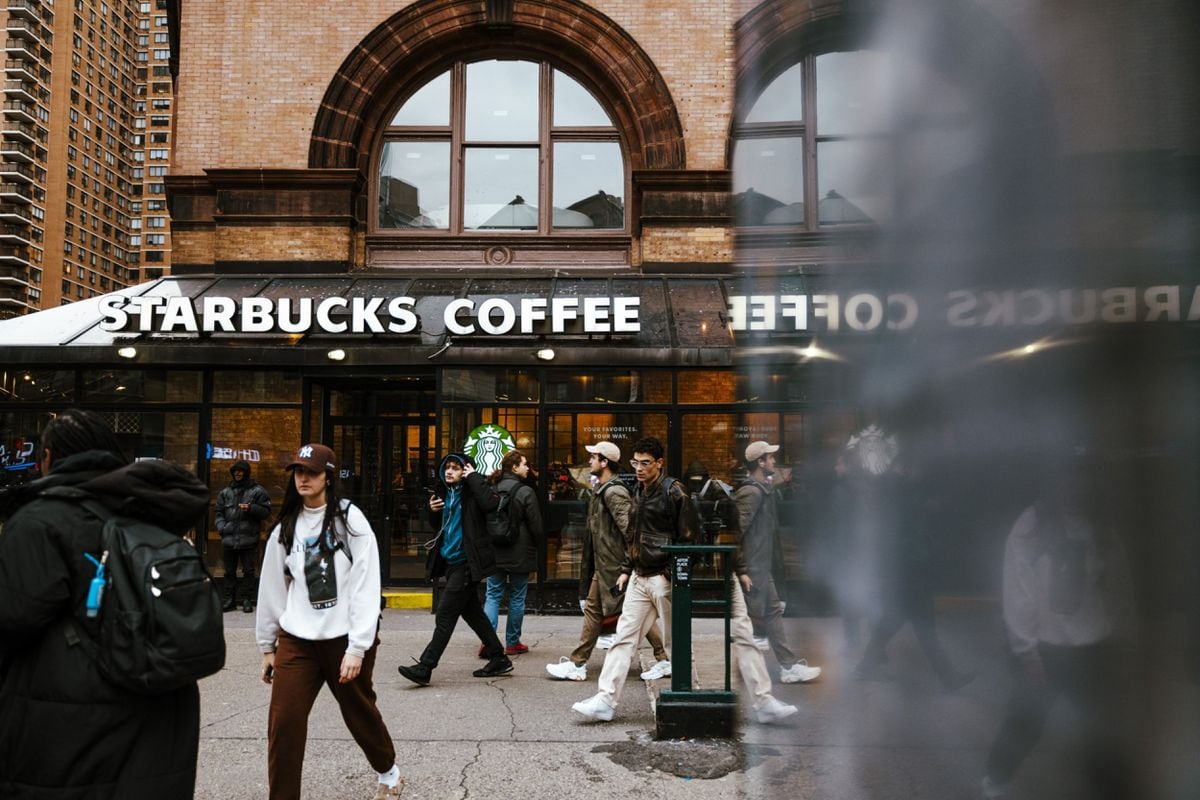The CEO of Starbucks, Laxman Narasimhan, admitted this Tuesday in a conference with analysts that the calls to boycott the coffee chain for the company's alleged support for Israel in the Gaza war, which the company has denied in numerous At times, they have hindered their business.
Those calls had “a negative impact” for its business in the Middle East, which then, in turn, “had an impact in the United States, driven by misperceptions” about Starbucks' position, according to Narasimhan.
The trigger for the boycott calls was a lawsuit against Workers United, the union that organizes its workers, after a social media account of that organization posted a pro-Palestinian message in the wake of the conflict in Gaza.
The company alleged that the lawsuit was for improper use of its name and because it wanted to stay away from taking political positions.
Following calls for a boycott, Narasimhan published an open letter to employees in December stating that Starbucks condemns “violence against the innocent, hate and armed speech and lies.”
“We are a company with a mission and promises based on humanity and giving.
We hate hate.
We strongly reject violence against the innocent.
Our values deliver performance through the lens of humanity.
We champion courage, belonging and joy, with an art that leads to the results we offer.
And we pursue ambitious goals for our partners and stakeholders with intention, transparency and responsibility,” he maintained.
That letter did not serve to calm things down and some Starbucks coffee shops were the target of protests in the United States.
Days later, Narashiman published a new message in which he denounced the “misrepresentation” of his position.
“While I am grateful for many things, I am concerned about the state of the world we live in.
There are conflicts in many parts.
Violence has been unleashed against the innocent, hatred and armed speech, and lies, all of which we condemn.
In cities around the world—including here in North America—protests have intensified.
Many of our stores have suffered incidents of vandalism.
We see protesters influenced by the misrepresentation on social media of what we represent.
We have worked with local authorities to ensure the safety of our partners and customers.
there is nothing more important.
Our position is clear.
We defend humanity” he said.
The coffee chain's income increased by 8.2%, to $9,425 million, a record for the first quarter of its fiscal year (October to December), which remains, however, somewhat below what they expected. the analysts.
Consolidated net profit grew by 19.8%, to $1,024.4 million, according to the accounts presented this Tuesday by the company based in Seattle (Washington).
Experts had already been cutting forecasts for fear of the impact of calls for a boycott.
A part of that growth comes from the opening of new establishments.
The company opened 549 net new stores in the first quarter of the year, closing the period with 38,587 cafeterias: 51% operated by the company and 49% licensed.
At the end of the first quarter, establishments in the United States (16,466) and China (6,975) represented 61% of the company's global portfolio.
Overall sales at comparable locations increased 5%, driven by a 3% increase in comparable transactions and a 2% increase in average ticket.
Comparable sales at locations in North America and the United States increased 5%, thanks to a 4% increase in the average ticket and a 1% increase in comparable transactions.
This represents a slowdown compared to the growth rate of a year ago.
In contrast, comparable sales at international establishments increased 7%, driven by an 11% increase in comparable transactions and a 3% decrease in the average ticket.
It is in China where consumers are spending less at Starbucks: sales increased by 10%, but because there was a 21% increase in operations and a 9% decrease in the average ticket.
Competitive pressure has increased in the country, with new coffee chains that offer cheaper products.
Although Starbucks refuses to enter into a price war, its average ticket has dropped sharply.
“The results of the first quarter have been good in many aspects.
Of note is the unwavering commitment of our most loyal customers, the growth in the number of rewards members, the offer and the spend per member,” commented Laxman Narasimhan, CEO.
“Despite the headwinds, our brand is very strong,” he added.
“I am proud of the significant margin expansion and double-digit profit growth we achieved in the first quarter, as it highlights our multiple avenues for profit growth,” said Rachel Ruggeri, Chief Financial Officer.
“We are acting on several levers within these multiple avenues to continue fulfilling our balanced growth model for the rest of the year,” Ruggeri added.
Starbucks has had some more complications in the quarter.
Workers at more than 200 American locations walked off the job on November 16 to protest the lack of progress in negotiating an agreement with the company in the largest strike in the more than two years of efforts to unionize the workforce.
Follow all the information on
Economy
and
Business
on
and
X
, or in our
weekly newsletter

